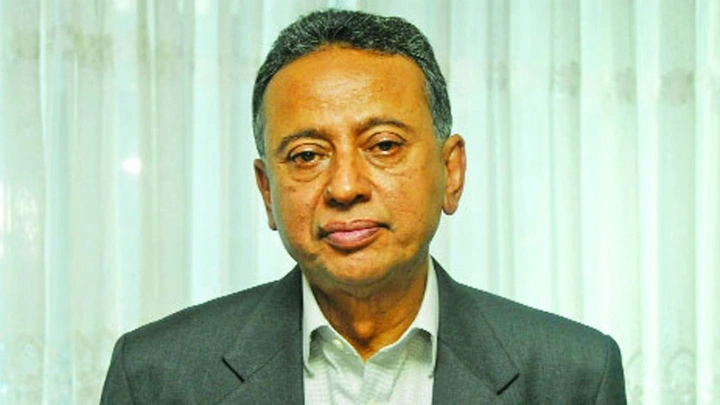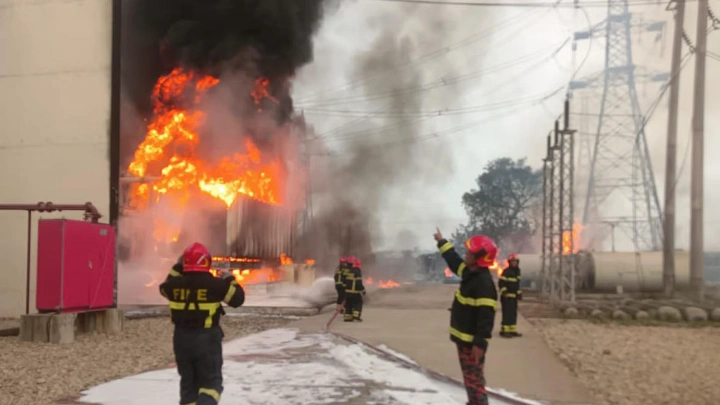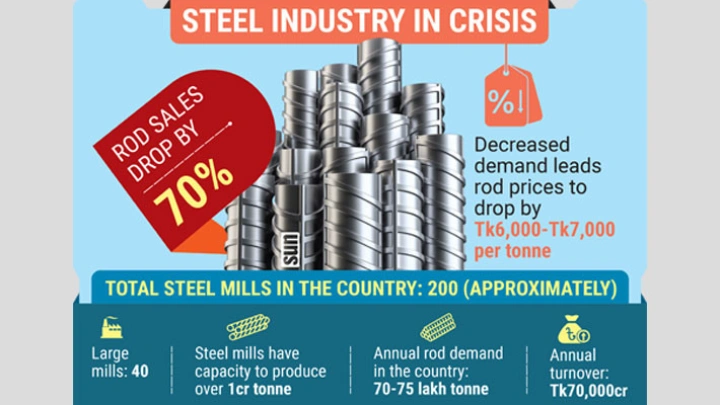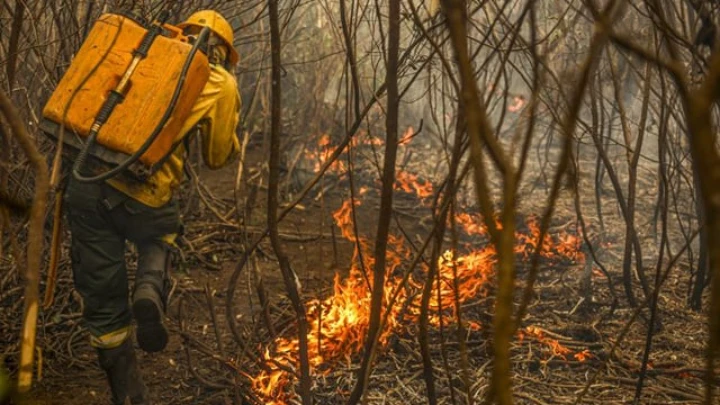BNP committed to form national government
DailySun || Shining BD
BNP standing committee member and former commerce minister Amir Khasru Mahmud Chowdhury said they’re committed to form a national government if they achieve victory in next national elections.
In an exclusive interview with the Bengali daily Bangladesh Pratidin, Amir Khosru shared his views on the country's overall state, including politics, the economy, interim governance, upcoming national elections, constitutional amendments, and necessary reforms.
Question: What is the current state of the country's politics and economy?
Amir Khosru Mahmud Chowdhury: Following the fall of the fascist regime, the central issue in Bangladesh's politics is the return to democracy. For the past 15–16 years, movements have focused on people's rights, voting rights, human rights, the rule of law, safety, price control, and fighting corruption and looting. At the core of these issues lies an unelected, illegal, occupying government. Since it was unelected and lacked a mandate from the people, it turned into an authoritarian or fascist regime. The only way out is to restore ownership to the people through a government and parliament elected by the people, which is accountable to them.
Question: What are your thoughts on the election roadmap announced by the interim government?
Amir Khosru: We do not want to pressure the government with deadlines regarding elections. We are cooperating with the government and have unitedly supported the interim government to ensure that democratic processes begin, leading to a fair election and a smooth transfer of power to an elected government.
Question: How does your party view the government’s reform initiatives?
Amir Khosru: Discussions about reforms have been ongoing, and BNP proposed reforms long before this. Initially, we presented a 27-point reform proposal, which was later expanded to 31 points after discussions with democratic political parties. BNP also proposed reforms six years ago through its “Vision-2030”. There is broad recognition across the nation that reforms are necessary. Reforms required for the electoral process should be implemented before the elections, while others can continue as part of a long-term process. It is crucial to carry out reforms in a timely and democratic manner.
Question: How feasible is BNP’s pledge to form a national government after the election?
Amir Khosru: We have proposed 31 reforms, and consensus has been reached among those participating in the simultaneous movement. Political parties outside this coalition have also joined, creating a broad agreement. Nearly 50 parties are aligned with this consensus. BNP has committed to forming a national government post-election with the participation of all those involved in this movement and consensus. This is a serious commitment, reflecting BNP’s sincerity to the nation.
Question: How prepared are political parties for the national election? Should the interim govt conduct local government elections?
Amir Khosru: Conducting local government elections under an unelected government is like putting the cart before the horse. Local government elections should be held under an elected government. It is currently imperative to form an elected government through national elections. Local government elections can be held gradually and systematically under a national government.
Question: What is your view on calls for constitutional amendments?
Amir Khosru: Where there is consensus, constitutional amendments can be made immediately. However, contentious areas should be addressed by an elected government with a public mandate in the next parliament.
Question: How can the police force, judiciary and Election Commission be restructured and made effective?
Amir Khosru: The Election Commission and executive branches supporting it must be allowed to function independently. Necessary reforms must be introduced to ensure the judiciary and police force can also work autonomously. Reform commissions have already been proposed for these purposes.
Question: How do you view the ongoing student and public movement? What role do political parties, including BNP, play in this?
Amir Khosru: The BNP's movement has been ongoing for 16–17 years. Over this time, millions of false and baseless cases have been filed against our 6 million leaders and activists. Many were killed, disappeared, or left crippled. Some even died in police custody due to lack of medical care. Countless others lost their homes, businesses, and livelihoods. BNP Chairperson Begum Khaleda Zia has been fighting for democracy while standing at the edge of life and death. She was unjustly imprisoned to suppress democratic and voting rights and was even denied access to proper medical treatment.
Despite severe persecution, the BNP could not be silenced. The sacrifices and resilience of BNP leaders and activists cannot be overstated. Even after 10–15 years of repression, not a single BNP member left the party. Such loyalty is unmatched. Additionally, Tarique Rahman has proven that leadership can unite and motivate a nation even from abroad. His sacrifices and efforts, especially in steering the party to its current position through tireless online meetings and coordination, are unparalleled.
Question: BNP acting chairman Tarique Rahman has said that the upcoming election and political scenario pose significant challenges for the BNP. Do you agree?
Amir Khosru: Absolutely. Bangladesh has been pushed into an abnormal political state under Sheikh Hasina's fascist regime. She has destroyd the political framework. To overcome this, sticking to old political methods will not suffice. A new approach is needed, and Tarique Rahman has already initiated this. The BNP has embraced this change, and we are moving in the right direction. I believe a significant qualitative shift will emerge in Bangladesh's political landscape in the coming days.
Question: Leaders of the Anti-Discrimination Student Movement are considering forming a political party. What is your view?
Amir Khosru: This is everyone's right. It's not just the Anti-Discrimination Student Movement; anyone can form a political party if they wish. We welcome all initiatives. Our 16–17 years of struggle against Sheikh Hasina's government were aimed at restoring political rights, freedom of speech, and expression. Let a hundred flowers bloom! This is the freedom we have been fighting for.
Question: Jamaat-e-Islami advocates for proportional representation in the national election. Do you or your party support this?
Amir Khosru: Proportional representation is out of the question. We follow the Westminster-style democracy, which aligns with our political culture. We must continue in this tradition.
Question: You once led the top organisation for the country’s business community. How do you view the current state of business and trade? What is your take on the legal actions against some business leaders?
Amir Khosru: Business has been severely hindered over the past 15–16 years. The state’s economic structure has collapsed, with its backbone broken. The economic model followed was an "Awami model" centred on looting. Banks are running out of money, the stock market has been destroyed, and reserves have plummeted.
Recovering from this is extremely difficult, but it’s not impossible if we, as a nation, make a united decision. Cases may be filed, but their merit must be assessed.
Question: Domestic and international conspiracies persist. What is the solution?
Amir Khosru: Even if Sheikh Hasina flees after her autocratic rule collapses, her accomplices will remain, including those in the administration. The interim government must address this. Democracy cannot be restored with these individuals in key positions. However, if the nation remains united, they won’t succeed in any schemes. Vigilance and alertness are essential.
Question: When will BNP's national council take place?
Amir Khosru: Conferences and committees at district and sub-district levels are ongoing. Once they are completed, the national council will be organised.
Question: What is your primary expectation from the current government?
Amir Khosru: The only expectation is that the interim government promptly ends this transitional period through a free and fair election, thus rejoining the democratic process. This will be in the best interest of the country and its people.
Question: There are demands to bring Sheikh Hasina back to the country and put her on trial. What is your opinion?
Amir Khosru: After fleeing the country, it’s only fair for her to return and face trial. If she has the courage, she should return on her own. Now that we have an independent judiciary, there is no excuse to evade justice.
Question: What is your message to the people, the nation, and the interim government?
Amir Khosru: The people want to reclaim their sovereignty and citizenship rights. Together, we aim to establish those rights. I hope we will all remain united in the best interests of the country.
Shining BD






















